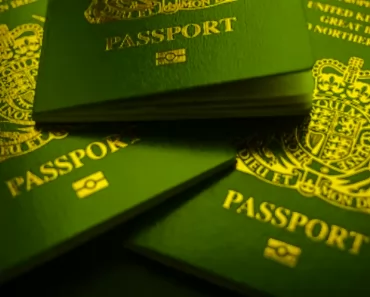As summer approaches and holidaymakers begin planning trips across Europe, the UK Foreign, Commonwealth & Development Office (FCDO) regularly issues updated travel advice for several popular destinations including Spain, Italy, Greece, and France. These updates reflect the latest developments in local safety, health regulations, and political or environmental concerns that may impact British tourists.
Whether it’s the risk of civil unrest in cities or guidance on passport validity and travel insurance, the FCDO’s recommendations are essential for anyone preparing to travel. Staying informed about these changes can help ensure a smooth and safe trip while avoiding unexpected complications abroad.
Here is the latest updated information for Brits heading to popular destinations including Spain, Italy, Greece, and France. For our free daily briefing on the biggest issues facing the nation, sign up to the Wales Matters newsletter here
READ MORE: Death in Paradise’s Ralf Little ‘buzzing to be back’ as he returns to much-loved role
READ MORE: Council wants to stop new bee hives and artificial grass from being installed on its land
Spain

Entry requirements
This information is for people travelling on a full ‘British citizen’ passport from the UK. It is based on the UK government’s understanding of the current rules for the most common types of travel.
The authorities in Spain set and enforce entry rules. If you’re not sure how these requirements apply to you, contact the Spanish Embassy in the UK.
Passport validity requirements
Spain follows Schengen area rules. Your passport must:
-
have a ‘date of issue’ less than 10 years before the date you arrive – if you renewed your passport before October 1, 2018, it may have a date of issue that is more than 10 years ago
-
have an ‘expiry date’ at least 3 months after the day you plan to leave the Schengen area (the expiry date does not need to be within 10 years of the date of issue)
Check with your travel provider that your passport and other travel documents meet requirements. Renew your passport if you need to.
Safety and security
Terrorism
There is a high threat of terrorist attack globally affecting UK interests and British nationals, including from groups and individuals who view the UK and British nationals as targets. Stay aware of your surroundings at all times.
UK Counter Terrorism Policing has information and advice on staying safe abroad and what to do in the event of a terrorist attack. Find out how to reduce your risk from terrorism while abroad.
Terrorism in Spain
Terrorists are likely to try and carry out attacks in Spain.
Attacks could be indiscriminate, including in places visited by foreign nationals. Stay aware of your surroundings, keep up to date with local media reports and follow the advice of local authorities.
In January 2023, one person was killed and others injured in a machete attack at 2 churches in Cadiz
Political situation
Demonstrations, political gatherings or marches can take place with little or no warning, particularly in cities. Follow the advice of police and local authorities.
While most demonstrations are peaceful, there is a risk of unrest or violence. If you’re near areas where demonstrations are taking place, be aware of what is happening around you and move away if there are signs of disorder.
Health
Before you travel check that:
-
your destination can provide the healthcare you may need
-
you have appropriate travel insurance for local treatment or unexpected medical evacuation
This is particularly important if you have a health condition or are pregnant.
Emergency medical number
Dial 112 and ask for an ambulance.
Contact your insurance or medical assistance company quickly if you’re referred to a medical facility for treatment.
Vaccine recommendations and health risks
At least 8 weeks before your trip:
See what health risks you’ll face in Spain, including:
-
dengue
-
biting insects and ticks
Altitude sickness is a risk in parts of Spain. Read more about altitude sickness on TravelHealthPro.
Medication
The legal status and regulation of some medicines prescribed or bought in the UK can be different in other countries. There are details in the guide to getting healthcare in Spain.
Read best practice when travelling with medicines on TravelHealthPro.
Healthcare in Spain
FCDO has a list of medical providers in Spain where some staff will speak English.
Italy

Death of Pope Francis
Following the death of Pope Francis on 21 April, large crowds are expected in Rome and the Vatican City over the coming days. Please follow the advice of local authorities.
Entry requirements
This information is for people travelling on a full ‘British citizen’ passport from the UK. It is based on the UK government’s understanding of the current rules for the most common types of travel.
The authorities in Italy set and enforce entry rules. If you’re not sure how these requirements apply to you, contact the Italian Embassy in the UK.
Passport validity requirements
Italy follows Schengen area rules. Your passport must:
-
have a ‘date of issue’ less than 10 years before the date you arrive – if you renewed your passport before October 1, 2018, it may have a date of issue that is more than 10 years ago
-
have an ‘expiry date’ at least 3 months after the day you plan to leave the Schengen area (the expiry date does not need to be within 10 years of the date of issue)
Check with your travel provider that your passport and other travel documents meet requirements. Renew your passport if you need to.
You will be denied entry if you do not have a valid travel document or try to use a passport that has been reported lost or stolen.
Lost or stolen passports
If your passport is lost or stolen, you must renew your passport or apply for an emergency travel document. You cannot use a police report to leave Italy.
Safety and security
Terrorism
There is a high threat of terrorist attack globally affecting UK interests and British nationals, including from groups and individuals who view the UK and British nationals as targets. Stay aware of your surroundings at all times.
UK Counter Terrorism Policing has information and advice on staying safe abroad and what to do in the event of a terrorist attack. Find out how to reduce your risk from terrorism while abroad.
Terrorism in Italy
Terrorist attacks in Italy cannot be ruled out.
Events in Israel and the Occupied Palestinian Territories
Italian authorities have increased security around some Jewish community sites due to events in Israel and the Occupied Palestinian Territories. Stay aware of your surroundings, stay away from demonstrations and follow the advice of local authorities.
Political demonstrations
Demonstrations can happen with little or no warning in cities. Avoid any protests, political gatherings or marches.
Jubilee 2025 – Holy Year
Rome expects a high number of visitors throughout the Holy Year of 2025, particularly during large events.
Jubilee Events
Check the official Jubilee website or download the Jubilee app for a calendar of events and to stay informed of anything that might affect your travel or plans whilst in Rome.
Pilgrim’s card
If you are planning to take part in the Jubilee, get a free digital Pilgrim’s card. You will need this to take part in the main Jubilee events and to organise a pilgrimage to the Holy Doors of the 4 Papal Basilicas of Rome: St Peter’s in the Vatican, St John Lateran, St Mary Major and St Paul Outside the Walls.
Transport around the city
Transport routes around the city will be very busy. Local authorities may ask you to enter or leave by specific routes. Make sure you:
For information on public transport in Rome during the Jubilee, see the Rome public transport website or use the Rome city journey planner.
Increased risk of petty crime
The higher number of travellers during the Holy Year could increase levels of petty crime.
Health
Before you travel check that:
-
your destination can provide the healthcare you may need
-
you have appropriate travel insurance for local treatment or unexpected medical evacuation
This is particularly important if you have a health condition or are pregnant.
Emergency medical number
Dial 118 and ask for an ambulance.
Contact your insurance company quickly if you’re referred to a medical facility for treatment.
Vaccine recommendations and health risks
At least 8 weeks before your trip:
See what health risks you’ll face in Italy, including:
-
dengue
-
biting insects and ticks
Altitude sickness is a risk in parts of Italy, including the Alps and the Dolomites. Read more about altitude sickness on TravelHealthPro.
Healthcare
FCDO has a list of medical providers in Italy where some staff will speak English.
Greece

Entry requirements
This information is for people travelling on a full ‘British citizen’ passport from the UK. It is based on the UK government’s understanding of Greece’s current rules for the most common types of travel.
The authorities in Greece set and enforce entry rules. If you’re not sure how these requirements apply to you, contact the Greek Embassy in the UK.
Passport validity requirements
Greece follows Schengen area rules. Your passport must:
-
have a ‘date of issue’ less than 10 years before the date you arrive – if you renewed your passport before October 1, 2018, it may have a date of issue that is more than 10 years ago
-
have an ‘expiry date’ at least 3 months after the day you plan to leave the Schengen area (the expiry date does not need to be within 10 years of the date of issue)
Check with your travel provider that your passport and other travel documents meet requirements. Renew your passport if you need to.
You will be denied entry if you do not have a valid travel document or try to use a passport that has been reported lost or stolen.
Safety and security
Terrorism
There is a high threat of terrorist attack globally affecting UK interests and British nationals, including from groups and individuals who view the UK and British nationals as targets. Stay aware of your surroundings at all times.
UK Counter Terrorism Policing has information and advice on staying safe abroad and what to do in the event of a terrorist attack. Find out how to reduce your risk from terrorism while abroad.
Terrorism in Greece
Terrorists are likely to try to carry out attacks in Greece.
Attacks could be indiscriminate, including in places visited by foreign nationals.
There have been several attacks involving explosives and automatic weapons against Greek institutions, shopping malls, banks, media offices, diplomatic premises and the police.
Explosion in Thessaloniki
There has been an explosion in Thessaloniki in the early morning of May 3. If you’re in the area you should take care and follow the advice of the local authorities.
Political protests
Greek authorities have increased security at some prominent locations, including tourist sites, due to events in Israel and the Occupied Palestinian Territories.
There is currently a heightened risk of such protests, particularly in central Athens.
Stay aware of your surroundings, stay away from protests and follow the advice of local authorities.
Strikes and demonstrations
There are regular strikes, sometimes called at short notice, that can cause disruption to buses, trains, ferries and air travel, as well as road networks and borders.
Demonstrations often take place around major squares in central Athens, in particular Syntagma Square. Political demonstrations may take place on certain dates:
-
May 1 (Labour Day)
-
November 17 (anniversary of when student protests against a military dictatorship were put down violently – ‘Polytechnio’)
-
December 6 (anniversary of the shooting of 15-year-old student Alexandros Grigoropoulos)
Some demonstrations in the past have turned violent. Avoid demonstrations wherever possible and move away to the last known safe place. Security forces often use tear gas to break up demonstrations, which can harm your breathing and vision.
Health
Before you travel check that:
-
your destination can provide the healthcare you may need
-
you have appropriate travel insurance for local treatment or unexpected medical evacuation
This is particularly important if you have a health condition or are pregnant.
Emergency medical number
Dial 112 or 166 and ask for an ambulance.
Contact your insurance or medical assistance company quickly if you’re referred to a medical facility for treatment.
Vaccine recommendations and health risks
At least 8 weeks before your trip:
See what health risks you’ll face in Greece.
Altitude sickness is a risk in parts of Greece. Read more about altitude sickness on TravelHealthPro.
Medication
The legal status and regulation of some medicines prescribed or bought in the UK can be different in other countries.
Read best practice when travelling with medicines.
Pharmacies across Greece stock a good supply of medicines, but there are strict rules around dispensing certain medicines, including antibiotics. Bring prescription medicines with you and carry a letter from your doctor stating the quantity required during your stay. Keep the medication in the original container with the prescription label. The name on the prescription must match the name on your passport.
Prescriptions for uninsured individuals are only dispensed from:
If you need to take controlled medicines in Greece, contact the Organisation Against Drugs (OKANA).
France

Entry requirements
This information is for people travelling on a full ‘British citizen’ passport from the UK. It is based on the UK government’s understanding of the current rules for the most common types of travel.
The authorities in France set and enforce entry rules. If you’re not sure how these requirements apply to you, contact the French Embassy in the UK.
Passport validity requirements
France follows Schengen area rules. Your passport must:
-
have a ‘date of issue’ less than 10 years before the date you arrive – if you renewed your passport before October 1, 2018, it may have a date of issue that is more than 10 years ago
-
have an ‘expiry date’ at least 3 months after the date you plan to leave the Schengen area (the expiry date does not need to be within 10 years of the date of issue)
Check with your travel provider that your passport and other travel documents meet requirements. Renew your passport if you need to.
You will be denied entry if you do not have a valid travel document or try to use a passport that has been reported lost or stolen.
Visa requirements
You can travel without a visa to the Schengen area, which includes France, for up to 90 days in any 180-day period. This applies if you travel:
-
as a tourist
-
to visit family or friends
-
to attend business meetings, cultural or sports events
-
for short-term studies or training
The requirements for working in France are different.
If you’re travelling to other Schengen countries as well, make sure your whole visit is within the 90-day visa-free limit. Visits to Schengen countries in the 180 days before you travel count towards your 90 days. If you overstay the 90-day visa-free limit, you may be banned from entering Schengen countries for up to 3 years.
If you cannot return to the UK before your visa-free limit expires, contact the nearest local prefecture in France.
Make sure you get your passport stamped on entry and exit.
If you’re a visitor, border guards will look at passport stamps to check you have not overstayed the 90-day visa-free limit for the Schengen area.
If your passport is missing a stamp, show evidence of when and where you entered or left the Schengen area (for example, boarding passes or tickets) and ask the border guards to add the date and location in your passport.
At French border control, you may need to:
-
show proof of your accommodation
-
show proof of your travel insurance
-
show a return or onward ticket
-
prove that you have enough money for your stay
Staying with family, friends or a third party
You may be asked to provide a welcome invitation (‘attestation d’accueil’) from your host. The French resident hosting you must get the attestation d’accueil from their local mayor’s office and send the original attestation before you enter France.
Safety and security
Terrorism
There is a high threat of terrorist attack globally affecting UK interests and British nationals, including from groups and individuals who view the UK and British nationals as targets. Stay aware of your surroundings at all times.
UK Counter Terrorism Policing has information and advice on staying safe abroad and what to do in the event of a terrorist attack. Find out how to reduce your risk from terrorism while abroad.
Terrorists are very likely to try to carry out attacks in France. Terrorism attacks could be indiscriminate, including in places visited by tourists and foreign nationals such as:
-
shopping centres
-
entertainment establishments and nightlife venues
-
sporting and cultural events
-
public transport and national and international transport hubs
-
places of worship
-
crowded places and public gatherings
Methods of attack have included knife attacks, shootings, bombings and vehicle attacks. Be vigilant in public places and follow the advice of local French authorities.
There have been several recent high-profile terrorist attacks in France, including:
-
in 2023, one person was killed in a knife and hammer attack in central Paris
-
in 2023, a teacher was killed in a knife attack in a school in Arras
French authorities regularly report that they have disrupted planned attacks and made arrests.
Industrial action
There can be frequent industrial action across France. This can lead to disruption and delays on roads and public transport. If you’re due to travel to or within France, monitor the media, check your operator’s advice and follow the advice of the authorities.
Demonstrations
Demonstrations, political gatherings, or marches can take place with little or no warning, particularly in cities.
Whilst most demonstrations are peaceful, if you’re near areas where they are taking place, you should remain aware of what is happening around you and follow the advice of the police and local authorities.
Health
Before you travel check that:
-
your destination can provide the healthcare you may need
-
you have appropriate travel insurance for local treatment or unexpected medical evacuation
This is particularly important if you have a health condition or are pregnant.
Emergency medical number
Call 112 and ask for an ambulance.
Contact your insurance or medical assistance company quickly if you’re referred to a medical facility for treatment.
Vaccine recommendations and health risks
At least 8 weeks before your trip:
See what health risks you’ll face in France, including:
-
dengue
-
biting insects and ticks
Altitude sickness is a risk in parts of France. Read more about altitude sickness on TravelHealthPro.
Medication
The legal status and regulation of some medicines prescribed or bought in the UK can be different in other countries.
Read best practice when travelling with medicines on TravelHealthPro.







